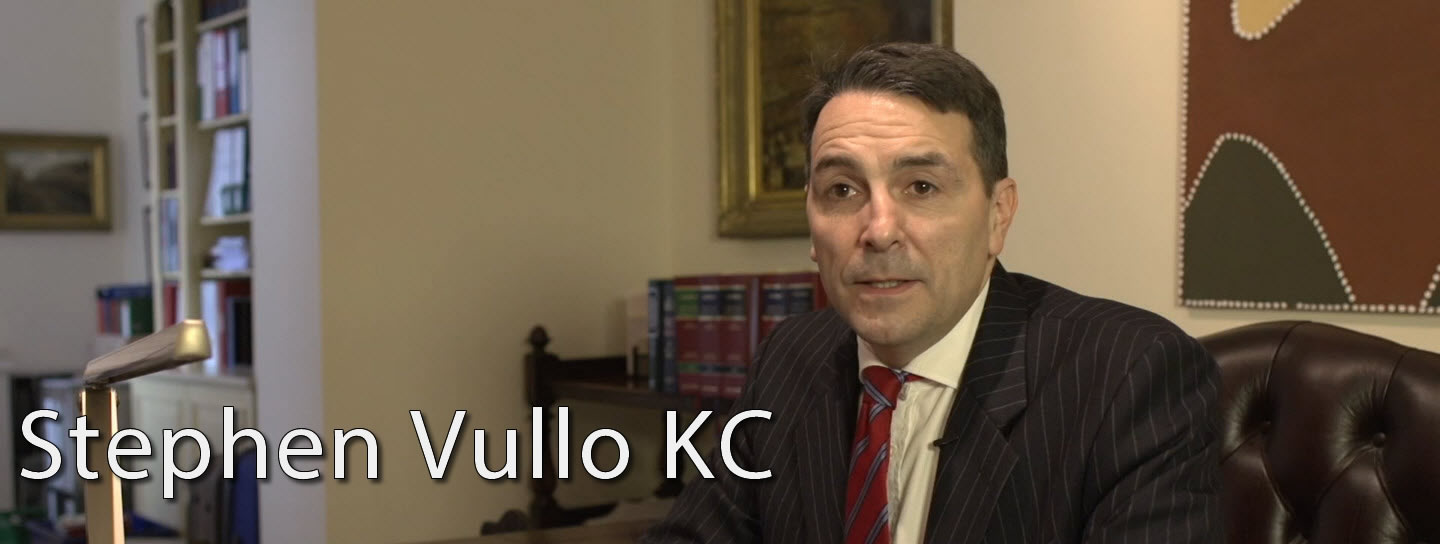Despite inadmissible opinion evidence from prosecution witnesses having been adduced before the jury, convictions for sexual assault and assault by penetration were safe.



Despite inadmissible opinion evidence from prosecution witnesses having been adduced before the jury, convictions for sexual assault and assault by penetration were safe.
ASSAULT BY PENETRATION CRIMINAL EVIDENCE OPINION EVIDENCE PROSECUTION WITNESSES RISK OF HARM SENTENCING SENTENCING GUIDELINES SEXUAL ASSAULT SEXUAL HARM PREVENTION ORDERS
In an indecent assault trial which turned on the comparative credibility of the complainant and the defendant, the judge should have given a full good-character direction in respect of the defendant. His failure to do so, coupled with his direction that the jury should treat the unchallenged evidence of the defendant’s character witnesses with caution, simply because they knew him well, rendered the defendant’s conviction unsafe.
ADMISSIBILITY BAD CHARACTER CHILDREN’S HOMES CREDIBILITY CRIMINAL EVIDENCE CRIMINAL PROCEDURE DISCLOSURE GOOD CHARACTER HISTORICAL OFFENCES INDECENT ASSAULT JURY DIRECTIONS SEVERANCE
A judge had erred in imposing a wasted costs order on a defence barrister after discharging the jury following the barrister’s closing speech. In front of the jury, the barrister had inappropriately criticised the procedure by which questions for young and vulnerable witnesses were formulated in advance, and had also strayed beyond the bounds of appropriate comment in relation to the complainant’s sexual behaviour. However, his comments could have been dealt with in the judge’s summing up and did not call for the discharge of the jury.
CHILD SEX OFFENCES CLOSING SPEECHES CRIMINAL EVIDENCE CRIMINAL PROCEDURE CROSS-EXAMINATION DISCHARGE OF JURY PROCEDURAL IRREGULARITY PROPORTIONALITY PROSECUTION OF OFFENCES ACT 1985 s.19A s.41 SEXUAL BEHAVIOUR VICTIMS WASTED COSTS ORDERS YOUTH JUSTICE AND CRIMINAL EVIDENCE ACT 1999 s.28
Convictions for rape and indecent assault were deemed unsafe where a judge had failed to give a jury clear directions as to whether, and if so how, they could rely on the evidence of each victim when considering the allegations made by the other.
ADMISSIBILITY BAD CHARACTER CAUSING CHILDREN TO ENGAGE IN SEXUAL ACTIVITY CRIMINAL EVIDENCE HISTORICAL OFFENCES INDECENT ASSAULT JURY DIRECTIONS RAPE
A defendant had received a fair trial in a case concerning historical child sex offences where various pieces of contemporaneous evidence had been lost or destroyed. There was a substantial amount of additional material that could be used to test the reliability and credibility of the complainant, and the judge had given an impeccable direction to the jury to consider whether the defendant had been placed at a real disadvantage when they decided whether the prosecution had satisfied them of his guilt.
CHILD SEX OFFENCES CRIMINAL EVIDENCE DESTRUCTION OF EVIDENCE HISTORICAL OFFENCES INDECENCY INTERVIEW RECORDS PREJUDICE SUFFICIENCY OF EVIDENCE VIDEO EVIDENCE
There was no general principle that delay, in a criminal trial involving young children, meant that the evidence of that child should always be excluded at a subsequent trial; each case was fact specific. In the instant case, a judge had been entitled to admit a child’s Achieving Best Evidence interview at trial despite the delay of two years and four months since the interview had taken place.
BEST EVIDENCE CHILDREN CRIMINAL EVIDENCE CRIMINAL PROCEDURE CROSS-EXAMINATION DELAY EXCLUSION RAPE OF CHILD UNDER 13 SEXUAL ASSAULT OF CHILD UNDER 13
Despite the absence of certain evidence at trial, the appellant’s convictions for sexual assault and rape of his half-sister were safe, because the totality of the trial process including the directions given and the summing up was fair.
ABUSE OF PROCESS ASSAULT BY PENETRATION CRIMINAL EVIDENCE CRIMINAL PROCEDURE JURY DIRECTIONS POLICE INTERVIEWS PREJUDICE RAPE SEXUAL ASSAULT SEXUAL ASSAULT OF CHILD UNDER 13 WITNESSES
Where the admission of hearsay evidence of a person who had died was sought under the Criminal Justice Act 2003 s.116(2)(a), in the proviso in s.116(5), that if the circumstances (namely that person’s death) were caused “(a) by the person in support of whose case it is sought to give the statement…” [then the evidence would be inadmissible], “person” meant the defendant or somebody acting on his behalf, not the deceased person.
ADMISSIBILITY BEST EVIDENCE CRIMINAL EVIDENCE CRIMINAL PROCEDURE DISCHARGE OF JURY GOOD CHARACTER HEARSAY EVIDENCE SEXUAL ACTIVITY WITH CHILDREN SUICIDE
A grandfather’s convictions for the sexual abuse of his granddaughter were upheld. There was no proper basis for rejecting the granddaughter’s original complaints, which had been detailed in her ABE interview and maintained throughout the trial, and the reliability of a retraction statement she made shortly after sentencing had to be rejected.
APPEALS AGAINST CONVICTION ASSAULT OF CHILD UNDER 13 BY PENETRATION CHILD SEXUAL ABUSE CRIMINAL EVIDENCE CRIMINAL PROCEDURE FALSE STATEMENTS FRESH EVIDENCE RETRACTION SEXUAL ACTIVITY WITH CHILD FAMILY MEMBER
The jury directions given at the trial of a well-known publicist for historical sexual offences had not been inadequate or unfair, and his conviction for indecent assault was safe.
CONSENT CRIMINAL EVIDENCE CRIMINAL PROCEDURE FRESH EVIDENCE HISTORICAL OFFENCES INDECENT ASSAULT JURY DIRECTIONS SEXUAL GROOMING SUMMING UP
Please use the form below to make contact. Your email will be responded to promptly (we endeavour to respond to all email enquiries within one hour). Alternatively, you can call Stephen's firm, Twelve Tabulae Limited, on +44 (0) 203 846 5801.